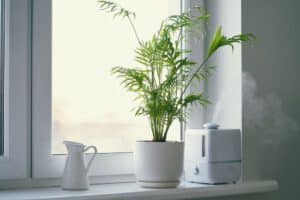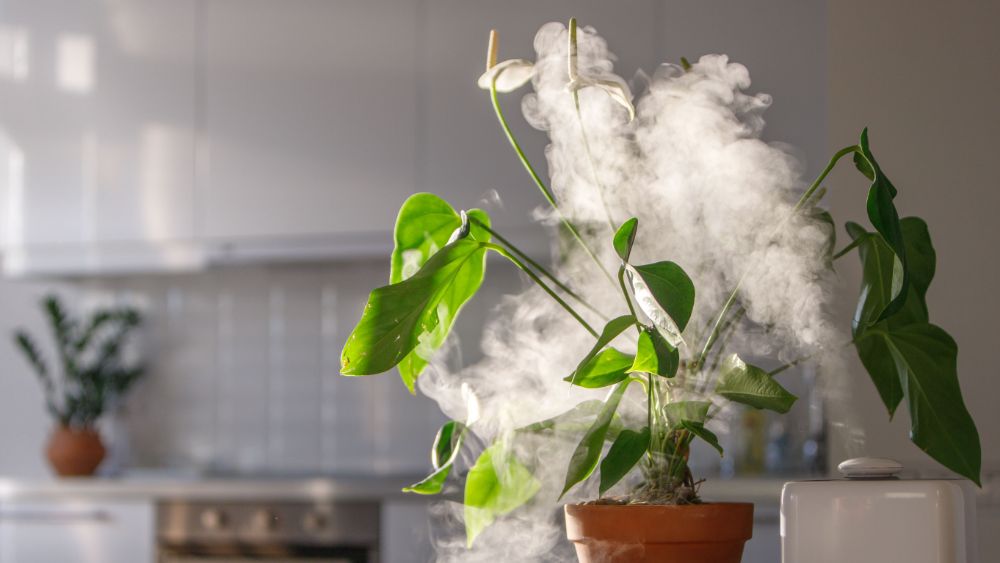Indoor Air Quality

Many people are interested in knowing whether the air they breathe in the workplaces and homes is safe. There are also individuals who may be suffering from respiratory issues or have problems with odor. It is common for this to be caused or triggered by mold. No matter what the cause of air quality maybe it is likely to solve once the root is determined.
Additionally, everyone is spending the majority of their time indoors working at the office or enjoying a relaxing time at home. Unfortunately, indoor air is more polluted and contaminated compared to the air outside. Indoor air is contaminated by between two and five times and in some instances up to 100 times more pollutants than outdoor air, as per the EPA.
Our offices and homes are contaminated with contaminants in the air we breathe (such as gas, chemicals, and living organisms like mold, bacteria, and pests) which can expose us to health issues.
Get Your Free Quote Today
Common Domestic or Home Pollutants
- Radon is a radioactive gas created in the soil. Radon can enter and get into buildings through cracks or gaps in walls and floors which are in contact with the soil. Radon is the main or primary reason for lung cancer in non-smokers and is the second most significant reason for lung cancer overall.
- Smoke from second-hand sources can be a consequence of smoking tobacco. Smoking second-hand can cause cancer and other serious respiratory ailments. Children are especially susceptible to smoking secondhand; it can trigger or worsen asthma symptoms. It also is linked to the risk of developing ear infections or Sudden Infant Death Syndrome (SIDS).
- Combustion pollutants are the gasses or particles that are produced by burning fuels. The main cause of pollutants in the home is due to not being vented properly or inefficiently for appliances that burn fuel (such as water heaters, stoves, dryers, space heaters, and wood stoves as well as fireplaces). The type and quantity of pollutants generated depend on the kind of appliance, the way it is maintained, installed, and vented, as well as the kind of fuel it burns.
Common combustion pollutants comprise:
- Carbon monoxide (CO), a non-odorous, colorless gas that can interfere with the flow and distribution of oxygen in our bodies. Carbon monoxide can result in headaches and dizziness nausea, weakness even death.
- Nitrogen dioxide (NO2), a colorless, and smell less gas that may cause nose, eye, and throat irritations, breathlessness, and a higher chance of respiratory infections.
- Vocal organic compounds (VOCs), chemicals that are found in polishes and paints as well as paint strippers and cleaning supplies varnishes and waxes insecticides and pesticides, building furnishings and furniture workplace equipment, mosquito repellents air fresheners, as well as dry-cleaned clothes. VOCs are released into the atmosphere when products are used, and sometimes in storage. VOCs can cause irritation to the nostrils, eyes or throat, and cause nausea, headaches, and harm to the kidneys, liver, and central nervous system. Certain of them may be a cause of cancer.
- Molds living organisms that create spores, microorganisms, or microorganisms. The spores produced by molds hang through the air. They fall on damp surfaces and expand. When you breathe in or touch mold, it can cause runny nose, sneezing eye redness, and skin eruptions. The molds may cause asthma attacks as well.
Improving Indoor Air Quality
How can you cleanse the air inside your office, home, and other indoor space?
The best method to cleanse the air inside your home is to avoid the cause in poor air quality inside your home. We’ve discovered that the main reason for the poor quality of indoor air for Duncanville, TX is mold. We can conduct mold tests and provide the most effective solution, which is to prevent moisture from entering the house.
If you are unable to find a way to stop the water’s entry or intrusion into your house, then you may have to invest in a dehumidifier in order to control and dry up the items that are damp. Additionally, you might need to install a Hepa air purifier to keep the mold spores at bay that can be circulating in your home.
Other steps you can take to improve the quality of your indoor air are as follows:
- Improve air ventilation by opening a few windows each day for 5 to 10 minutes, with the windows placed in both directions of the home.
- Put Plants in the house! NASA has found that houseplants dramatically enhance the air quality in your home.
- Get your shoes off and put them on the door each when you enter your home to avoid transferring harmful particles from room to room.
- Do not smoke tobacco in or within your home.
- Use safe cleaning products like hydrogen peroxide, baking soda, and vinegar.
- Do not immediately dry clean clothes inside your wardrobe. Better to hang them out for a couple of days. It’s even better to determine whether there’s an eco-friendly dry cleaning service in your town that utilizes a number of the most advanced dry-cleaning methods including liquid CO2.
- Make use of safer products for personal care. Avoid aerosols and search for cleaners with no VOCs.
- Beware of commercial air fresheners and candles that release thousands of different substances into your home.
- Cleanse and vacuum your carpets, mop, floors, and rugs regularly. Whenever a person steps on floors, a storm of irritating irritants will be rising and agitating.
- Update your furnace or heater filter. Modern filters are designed to efficiently capture particles. Also, make sure that your furnace, as well as air conditioning ductwork and chimney, are cleaned on a regular basis.
- Do not store solvents, adhesives, paints, and other harmful chemicals in your home or in a garage attached to it.
- Do not use non-stick kitchenware. As a good alternative, consider using cooking equipment made of ceramic instead.
- Make sure your appliances by ensuring they are vented properly.
- Choose eco-friendly and safer materials including VOC-free paints when building or renovating.
- Choose hardwood flooring that is sustainable as an alternative to carpet. Carpet traps loads of dirt particles like pet fur as well as heavy metals such as lead, cadmium, mercury, as well as all kinds of allergens. If you choose to install carpet, make sure you choose one that is marked “VOC-free” to prevent harmful off-gassing.
- Check that your home is well-drained and has an un-sealed foundation.
- Stop insects by sealing gaps, cracks, and leaks. Be sure to properly store food items and do not leave them exposed for any time.
When to Contact Duncanville's Best AC & Heating Repair LLC?
If you’ve had to deal with one of the following problems. Please call Duncanville’s Best AC & Heating Repair by AC Repair DFW to set up a quick review of your home’s air quality today:
- Allergies, asthma, or any other respiratory problem
- Colds, sore throats, and/or the flu
- Memory loss dizziness, fatigue, or depression

Call Today for your Free Instant Quote...

